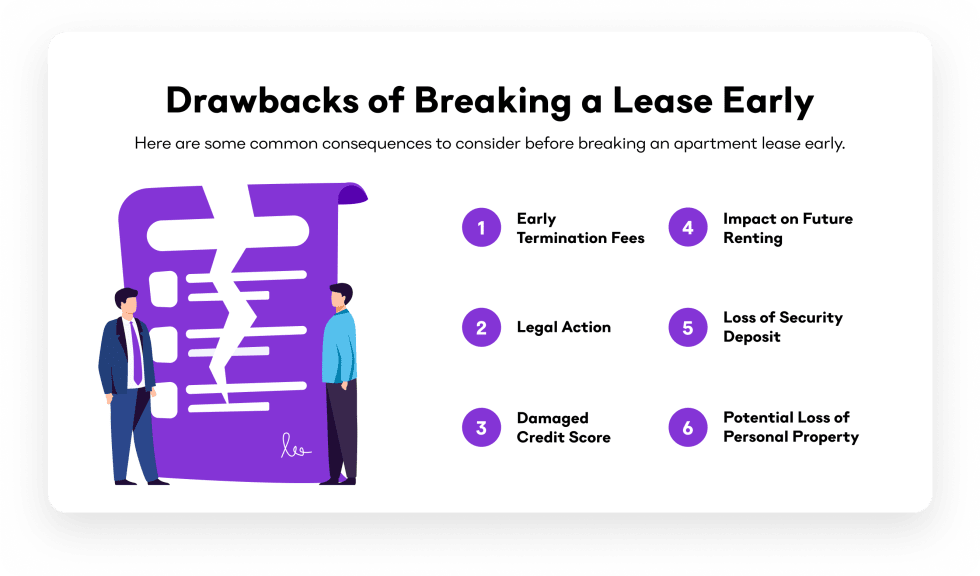What to Expect When You Break a Lease Early
What to Expect When You Break a Lease Early
Blog Article
The rental market is always shifting, with an increase of visitors than actually rethinking their residing situations. Queries about “can you break a lease” soared by around 70 percent within the last few year alone, showing a clear trend. Whether it's a job change, unexpected financial challenges, or a connection shift, the decision to break a lease is not one to take lightly. Understanding the important factors at play can help you save from unexpected financial and appropriate headaches.

Early Terminations on the Increase
A current examination across key US cities unmasked that approximately 18 percent of tenants contemplate breaking their lease before the entire term ends. That mirrors broader improvements in employment, life style, and also intellectual health priorities. Knowledge also demonstrates younger tenants, particularly those outdated 18 to 34, are probably the most likely to make a move mid-lease. If you are in this party, you are not really alone.
Financial Penalties Top the List
The most immediate problem tenants have is the economic impact. Study effects suggest that 65 % of landlords cost some kind of early termination price, that may range from the charge of a single month's lease to the total lease remaining on your agreement. About 28 percent of visitors surveyed said they underestimated these fees, ultimately causing surprise expenses that set back their budgets.
Concealed Charges and Other Expenses
It's not only about firing fees. Some landlords also withhold protection deposits or demand for re-listing the property. Typically, visitors can eliminate an additional 20 % of these deposit if the house needs cleaning or fixes following an earlier exit. Understanding these numbers may help with choice creating before giving notice.
Legitimate and Credit Consequences
Breaking a lease may follow you in more methods than one. Almost 22 percent of tenants who shattered their leases without discussing described a reduction with their credit report. Landlords may deliver your unpaid amounts to choices, rendering it harder to book elsewhere or protected loans. Moreover, being sued for unpaid book is really a actual, if less frequent, risk.
Acceptable Reasons and Negotiations
Not all lease breaks are handled equally. The absolute most frequently recognized reasons include wellness and security violations, military arrangement, or significant house damage from functions like normal disasters. More than half of tenants polled successfully negotiated with their landlords for a reduced charge or easier phrases once they presented paperwork for such reasons.
The Communication Factor
Information suggests that visitors who proclaimed early and overtly with their landlords could save your self an average of 35 per cent on penalty costs. Setting objectives, sharing certification, and arranging for a replacement tenant can all help reduce the fallout. The sooner you begin the discussion, the better your possibilities to reduce fees and protect your credit score.
What the Tendencies Tell People
Lease-breaking is obviously trending upward. Yet, the chance of unexpected costs and legal trouble remains high for many who don't program ahead. Reviewing your lease deal, knowledge the fine print, and seeking legal counsel if required are clever first steps.
Studying lease-breaking data can give tenants a better picture of what's at share, making it easier to consider their choices and avoid economic missteps. Being prepared and proactive turns what might be a major setback in to a well-managed transition. Report this page